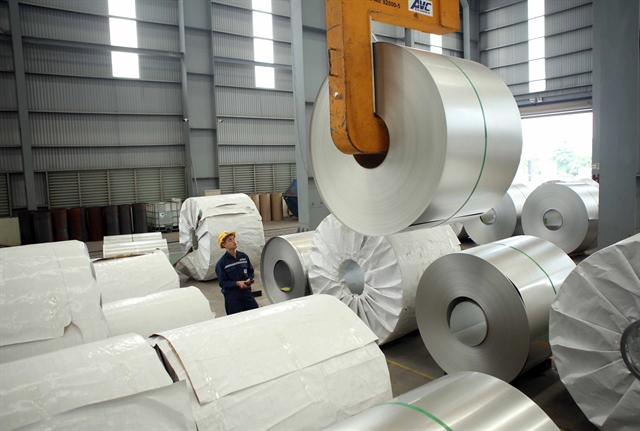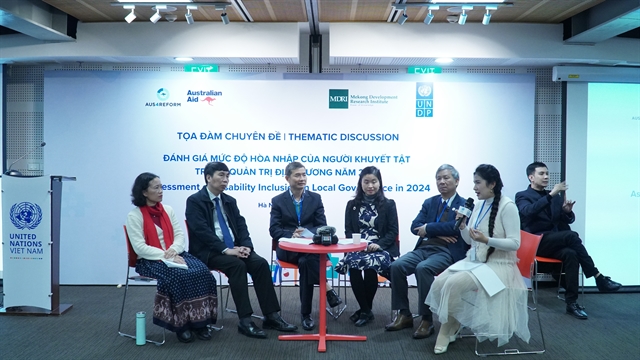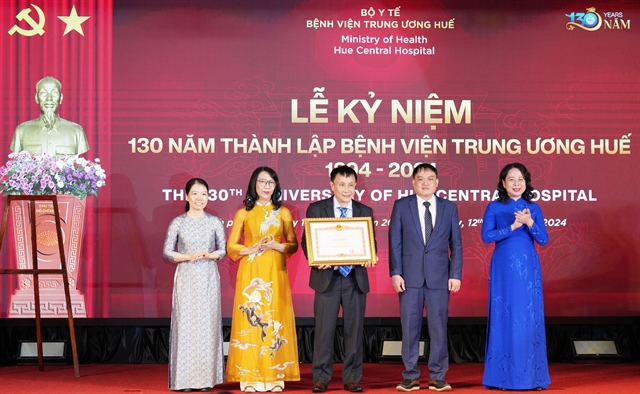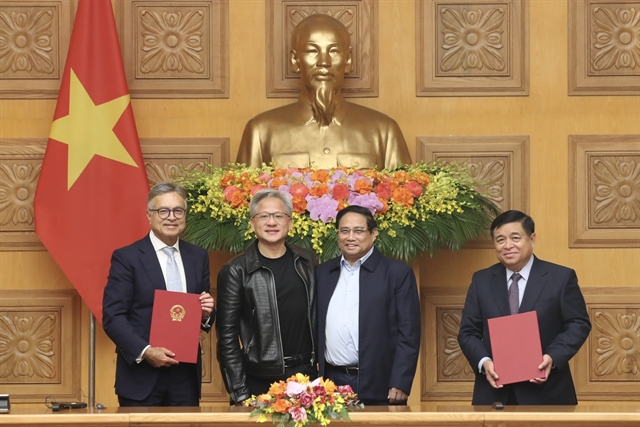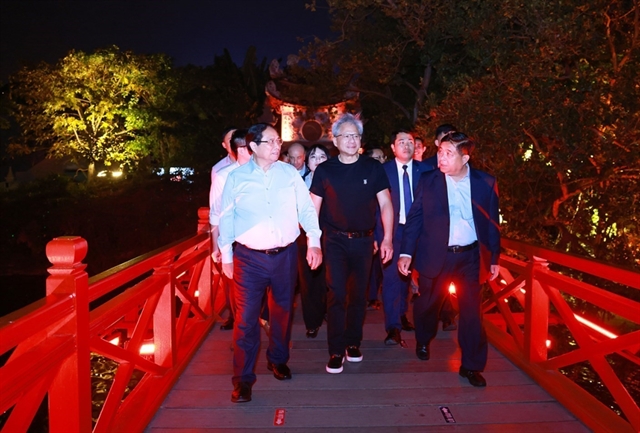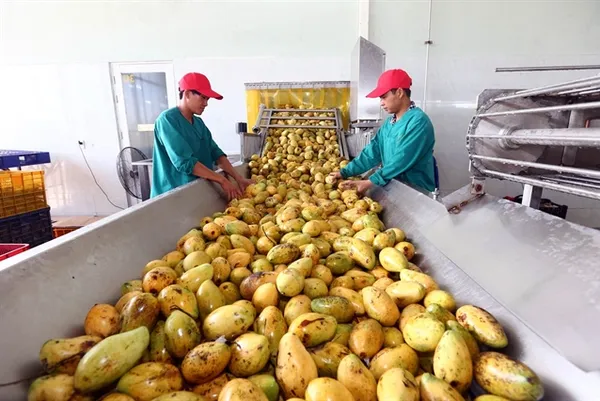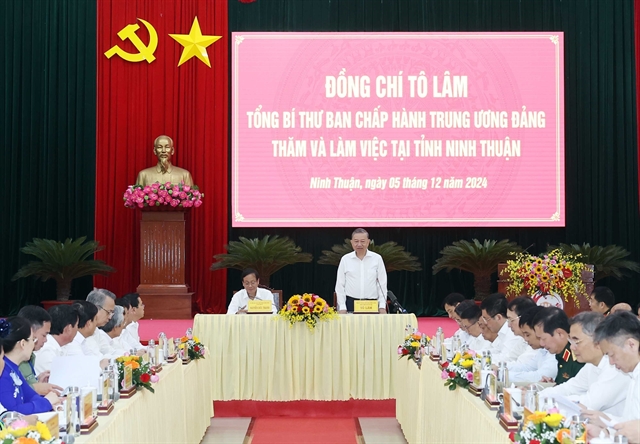

The second annual Vietnam – Australia Collaboration on Industry 4.0 roundtable explored opportunities for further cooperation to advance the Industry 4.0 transformation agenda in Vietnam and the Asia-Pacific region.
The second annual Vietnam – Australia Collaboration on Industry 4.0 roundtable explored opportunities for further cooperation to advance the Industry 4.0 transformation agenda in Vietnam and the Asia-Pacific region.
As Vietnam is accelerating to Industry 4.0, the country commits to actively engaging in embracing technology as well as developing partnerships and promoting policies framework for science, technology and innovation. The Ministry of Science and Technology has also emphasised that science, technology and innovation solutions must be applicable, and this requires strong collaboration between industry and universities to work together for research implementation.
In that spirit, today RMIT University and the Vietnam Institute of Science, Technology and Innovation (VISTI) under the Ministry of Science and Technology co-organised the 2nd Australia- Vietnam Collaboration on Industry 4.0 roundtable.
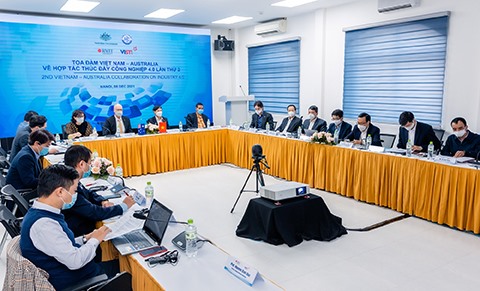
|
RMIT University and the Vietnam Institute of Science, Technology and Innovation (VISTI) co-organised the 2nd Australia- Vietnam Collaboration on Industry 4.0 roundtable.
It expanded on the foundation laid by the inaugural roundtable in December 2020, which focused on cooperation for the digitalisation of the manufacturing industry and related supply chains in Vietnam.
The second roundtable welcomed representatives from the Vietnamese and Australian governments, universities, as well as leading Vietnamese and global corporations such as Siemens, Adobe, Ericsson, Vietnam Electricity (EVN), Vietnam Airlines, Dat Xanh Services and Vingroup.
Participants shared experience and progress of university-industry collaborations, in addition to identifying critical factors that would accelerate Industry 4.0 development in Vietnam, including new skills development and workforce transformation.
Deputy Minister of Science and Technology Bui The Duy presented the Ministry’s key directions for Vietnam to embrace Industry 4.0 strategically in 2022 and beyond.
The Deputy Minister emphasised the importance of public-private partnership to promote the commercialisation of research and make research applicable. Further, the application of technology must go together with developing policy and legal frameworks that allow for the application of the technologies. that digital transformation must be deep and wide, in which people mindset must be the centre of the transformation.
He said: “Industries and universities must strengthen collaborations more, and by doing so together achieving solutions for Industry 4.0. We encourage industries and universities to take advantage of government fundings to serve the research purpose.”
“We look forward to supporting further collaborative initiatives not just on a governmental level, but also among academia and industry in both countries,” the Deputy Minister stated.
RMIT University and its industry partners showcased the Australian experience in digitalisation and research engagement with industry in relevant areas of Industry 4.0 such as industrial AI, Internet of Things, blockchain, cloud computing, additive manufacturing, cyber security, etc.
Professor Aleks Subic, RMIT Deputy Vice Chancellor (STEM College) and Vice President Digital Innovation said: “We know that there will be new jobs that emerge in this post-COVID world driven by technology advancements. So we need to be ready to meet this challenge with the right capabilities and skills. Our challenge is to enable new models of collaboration to drive new skills development at scale and pace.”
“It is only through partnerships between industry, higher education and government that we will be ready to take on this challenge, provide globally transformative education and high impact research, and invest in a digital innovation across sectors,” he said.
As Co-Chair of the 2nd Industry 4.0 roundtable, he affirmed RMIT’s continued commitment to strategic partnerships development with all stakeholders to support the uptake of Industry 4.0 and realisation of its benefits across all sectors in Vietnam.
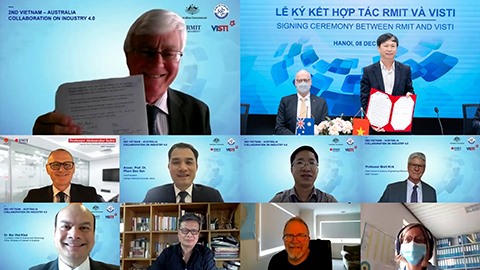
|
RMIT University and VISTI have signed an aide memoire to foster bilateral collaboration.
As part of the event, RMIT University signed an aide memoire with VISTI. This new agreement will promote the bilateral partnership within the framework of science, technology and innovation programs, tasks, and projects at national and other levels. RMIT and VISTI will build programs, models and resources to develop and improve the management capacity in science, technology and innovation for the public and private sectors in Vietnam. Moreover, both parties will participate in policy research related to promoting science, technology and innovation.
RMIT also formally launched the new School of Science, Engineering & Technology (SSET) in Vietnam and introduced its new dean Professor Brett Kirk. The announcement reinforces the University’s STEM expansion in Vietnam, which includes the recent addition of two undergraduate programs and planned introduction of a suite of master’s programs in 2022.

